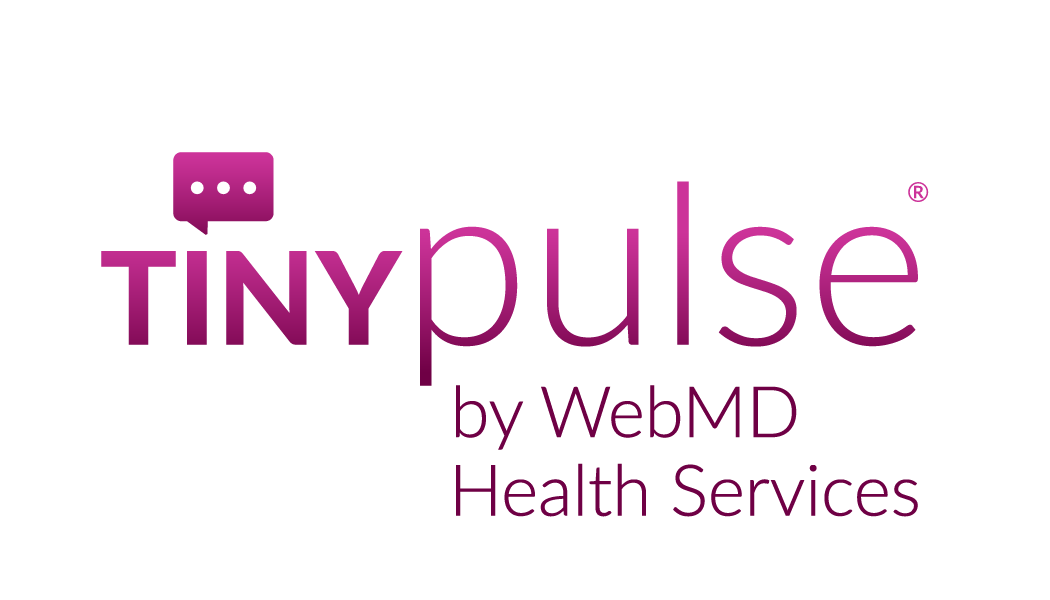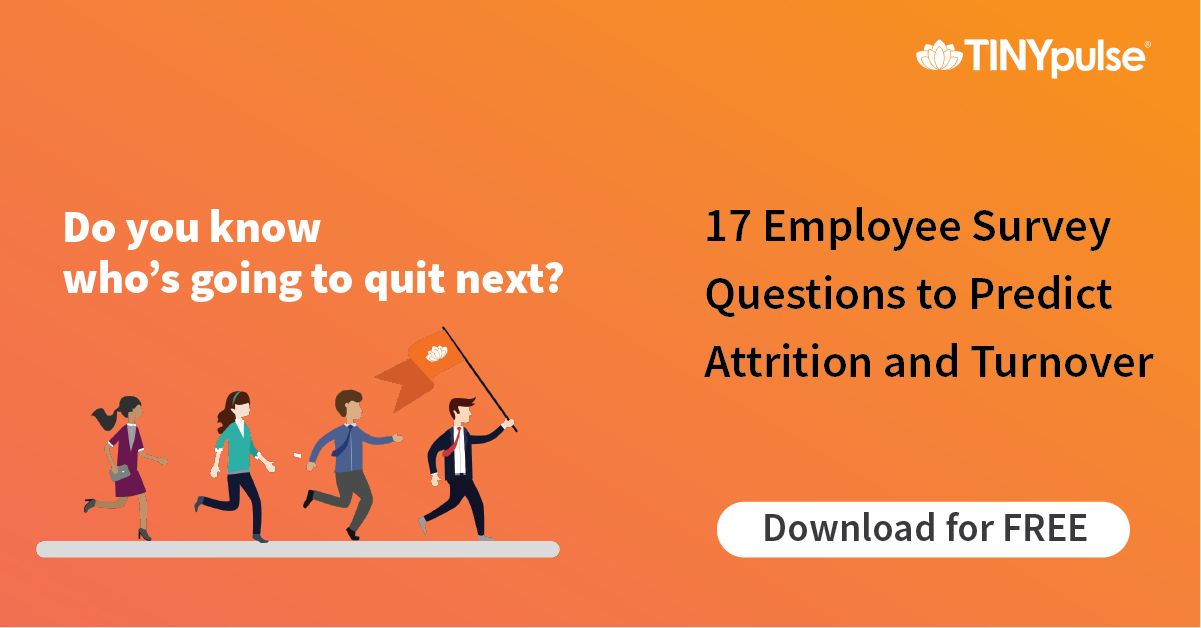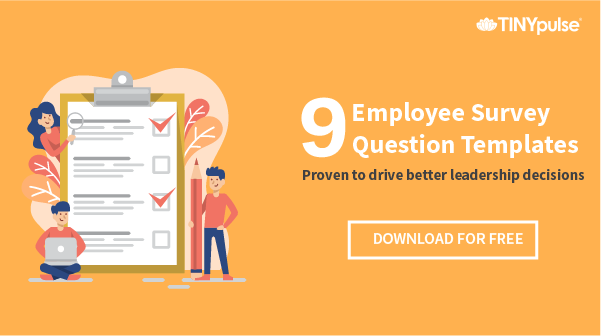Creating a More Effective Return-to-Work Plan: 12 Essential Employee Survey Questions to Ask Your Employees
Has the COVID-19 delta wave affected your return-to-work plans?
For many companies, the rising cases of the highly contagious delta variant have been concerning. So concerning, in fact, that many larger companies — like Apple and Lyft — have announced they are postponing office reentry again. Some, like Google, are delaying entry until as late as 2022. Others, like Microsoft, have indefinitely delayed returning to the office.
These well-known businesses — along with many others — have also shared they are using incentives to encourage employees to get vaccinated. These incentives often range from additional paid time off for vaccination to rewards and financial incentives.
As employees return to shared workspaces, company vaccine mandate policies — a somewhat controversial subject for HR leaders and employees alike — are also rapidly increasing.
While the approaches individual businesses take may vary significantly, one thing is clear:
Workplaces across the nation must adapt once again to maintain a safe and effective workforce.
The Great Resignation & COVID-19
One of the most significant hurdles we face as we attempt to adapt our workplaces during the pandemic is the Great Resignation. This year, many businesses are looking at employee turnover rates that are higher than ever, leading to millions of unfilled positions across the country.
During the second quarter of 2021 alone, the Department of Labor reported that nearly 11.5 million workers quit their jobs — and this mass exodus may just be the beginning. On a global scale, Microsoft found that over 40% of workers are considering quitting their jobs by the end of the year.
Under normal circumstances, there were already many factors influencing employee turnover. From workplace vaccine policies to remote work, COVID-19 has undoubtedly made us consider even more.
In the coming months, how we balance minimizing COVID-19 risk in the workplace with meeting business and employee needs will likely be one of the most pressing issues for leaders.
The Benefits of Conducting a COVID-19 Vaccine Readiness Survey
As the coronavirus pandemic draws on, so does the uncertainty surrounding it.
With the widespread availability and affordability of vaccines, many of your employees are likely anxious to know how this will influence return-to-work plans. By sending out a vaccine readiness survey, you’re giving them an outlet to share their perspectives — which can help you navigate the workplace vaccination issue more effectively.
TINYpulse’s recently published State of Employee Engagement report found that vaccination status and employee desire to get vaccinated varies significantly by industry and role. For example, while a reported 67.6% of HR leaders in the medical field are vaccinated, less than 34% of those in the IT consulting and marketing fields are.
Whether you’re considering implementing a vaccine mandate or are reassessing your business’ return-to-work plan, the best place to start is by looking at your own employees’ unique needs, feelings, and circumstances. A COVID-19 vaccine workplace readiness survey can help you do just that.
COVID-19 Vaccine Readiness Workplace Survey Template
Here is a COVID-19 vaccine readiness survey template you can use to solicit employee feedback relating to the vaccine. These sample survey questions are designed to give you the insights you need to successfully integrate vaccination efforts into your return-to-the-office plan.
COVID-19 vaccine readiness survey email subject lines
With the average employee survey response rate below 40%, crafting a compelling email subject line is crucial for your efforts.
Here are a few example subject lines you can use for your COVID-19 vaccine survey invitation email:
- Important COVID-19 vaccine survey - help us plan for safer office re-entry
- Employee COVID-19 vaccine survey - what barriers do you face?
- Employee COVID-19 vaccine survey - how can we better support you?
- Return to work survey - share your perspective on the COVID-19 vaccine
COVID-19 vaccine in the workplace survey question
- If the COVID-19 vaccine was offered free of charge through your workplace, how likely would you be to get the vaccine?
1 being extremely unlikely - 5 being extremely likely
Convenience and cost are barriers many employees face when it comes to getting vaccinated. Assessing the impact this has on your employees can help you determine whether there are additional methods you should consider to encourage vaccination in the workplace.
COVID-19 vaccine perceived benefits survey questions
- I have a medical need to get the COVID-19 vaccination.
1 being strongly disagree - 5 being strongly agree
- I believe the COVID-19 vaccine will be effective.
1 being strongly disagree - 5 being strongly agree
- I’m looking forward to increased protection from COVID-19.
1 being strongly disagree - 5 being strongly agree
- Getting the COVID-19 vaccine is important for my health.
1 being strongly disagree - 5 being strongly agree
- Getting the COVID-19 vaccine is important for protecting others in my community.
1 being strongly disagree - 5 being strongly agree
While many health experts agree the benefits of the COVID-19 vaccine far outweigh the risks, some members of your team may not fully understand the benefits. Asking questions about the perceived benefits of the COVID-19 vaccine can help you find opportunities to educate and inform your employees.
COVID-19 vaccine concerns survey questions
- I am worried about the side effects of the COVID-19 vaccine.
No, Yes
- I have had a bad prior experience with a vaccine.
No, Yes
- I am afraid of needles.
No, Yes
- I am concerned about the COVID-19 vaccine introducing a foreign substance into my body.
No, Yes
Your employees’ concerns about the vaccine are also important to consider. These questions will help you identify trends amongst your employees and give them a place to have their voices heard.
COVID-19 vaccine influencing factors survey questions
- What factors make you more likely to take COVID-19 vaccine? ________________
- What factors make you less likely to take the COVID-19 vaccine? ______________
Asking your employees open-ended questions about factors influencing whether they will take the vaccine allows them to bring forward issues you may not have considered. It can also provide an opportunity to open communication channels using features like TINYpulse’s private messaging, which allows you to follow up with individual employees anonymously to clarify responses and better understand their root issues.
Using Your COVID-19 Vaccine Readiness Survey Results
After you have conducted your COVID-19 vaccine readiness survey, you can analyze your results and use them to develop an effective return-to-work plan.
To analyze your survey results, look for patterns that emerge. Do your results indicate that your employees understand the vaccine’s benefits? Are there any concerns that stand out?
For the two open-ended questions, try to group your employees’ responses into overarching categories by looking for trends amongst your responses.
Using this information, you can tailor your return-to-work plan to meet your organization’s specific needs.
Creating a strategic plan to return to the office
If your survey results indicate a significant amount of concerns about the vaccine, your employees likely have low vaccine confidence. If this is the case, you may want to start by looking at steps you can take to build confidence and encourage your workers to get vaccinated.
The Centers for Disease Control offers several tips you can use to increase vaccine confidence in your workplace. These include:
- Developing more supportive policies by providing paid time off for vaccination or offering an on-site vaccine event.
- Asking leadership to serve as vaccine champions.
- Having discussions that allow employees to provide their input about building vaccine confidence.
- Sharing credible, accurate information with employees using a variety of communication channels.
Until you can increase vaccine confidence amongst your workforce, you may also want to consider postponing reentry or looking at hybrid options.
This will help keep your employees safer when they return to the office and provide you with additional time to consider the needs and preferences of your employees.
Integrating a vaccine policy into your return-to-work plan
In addition to supporting vaccine adoption, you may also be considering developing a vaccine policy — especially if your state or local authority has or is considering a workplace vaccine mandate for your industry.
According to the Society for Human Resource Management, when it comes to creating a workplace vaccine policy, there are typically two policy types to consider: a permissive (i.e., voluntary) policy and a mandatory policy.
Permissive Workplace Vaccine Policy
A permissive policy is a written policy issued by your business to strongly encourage your employees to get vaccinated. However, it doesn’t make vaccination a condition of employment.
In this type of policy, you will likely want to outline the specific efforts you are taking to encourage vaccination. This includes detailing financial and non-financial incentives, who is eligible, and the criteria for receiving such incentives.
Mandatory Workplace Vaccine Policy
With 52% of employees favoring a vaccine mandate in their own workplace, it’s no surprise that many major companies have announced plans to require COVID vaccines as a condition of employment. This is a trend likely to continue in light of the federal Food and Drug Administration’s Aug. 23 announcement approving the Pfizer vaccine.
Major Companies Requiring Employee COVID-19 Vaccinations
Here are the steps some of the world’s most well-known businesses are taking to ensure their employees are vaccinated:
- AT&T: To work on-site, AT&T has announced all management employees must be fully vaccinated by October 11. Certain medical and other exemptions may apply. While AT&T’s mandate doesn’t yet cover workers covered by a collective bargaining agreement, they are currently discussing plans with the union.
- Citigroup: Following the lead of other businesses like Morgan Stanley, Citigroup has implemented a vaccine mandate for workers at offices in New York, Chicago, and other major U.S. cities.
- CNN: CNN has implemented a zero-tolerance policy requiring all employees working in the office or in the field with colleagues to be fully vaccinated against the coronavirus. Multiple employees have been fired for violating this policy.
- Google: The tech giant Google has begun implementing a regionally-based vaccine mandate based on vaccine availability for employees working on campus. Exemptions for medical and other protected reasons are allowed.
- McDonald’s: Corporate McDonald’s workers will have to show proof of vaccination before the planned office reopening on October 11. Medical and religious exemptions are allowed.
Developing a Workplace Vaccine Policy
If you are considering implementing a similar policy in your workplace, there are a few elements you may want to consider first, including:
- Exemptions from the mandate: Many of the companies highlighted above offer medical, religious, and other vaccine exemptions to ensure compliance with Equal Employment Opportunity laws.
- Collective bargaining agreements: If your workforce is covered by a collective bargaining agreement, typically you’ll need to bargain with the union before adopting a policy requiring vaccination.
- Across-the-board policies: Before developing a policy, it’s generally a good idea to take a look at your unique workforce. Are there specific positions that are higher risk than others? Are the majority of your workers going to continue remote work? Questions like these will help you develop better parameters about who your mandate applies to.
How do your employees feel about the COVID-19 vaccine?
Like many people, your employees likely have mixed views about the vaccine and their willingness to return to the workplace. A vaccine readiness survey can help your business better understand your employees’ thoughts about the vaccine and give them the opportunity to provide feedback.
By asking about perceived benefits, concerns, and influencing factors, you can use your survey results to develop a more effective return-to-work plan. With a safe and healthy staff back in the office, you can focus all of your energy on building the best products you can and delighting your customers.
Share this
You May Also Like
These Related Stories
12 Employee Survey Questions You Need to Ask During the Pandemic






.png?width=534&height=632&name=blog%20ad%20(1).png)
